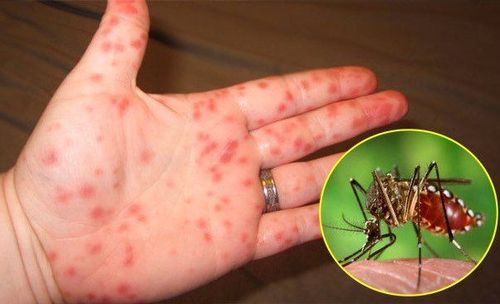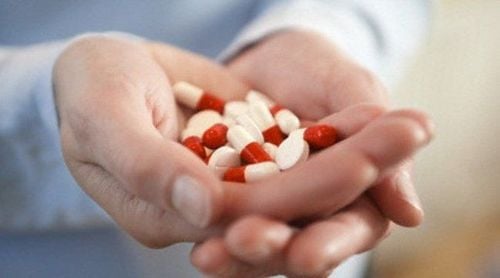This is an automatically translated article.
Pancidol is a popular non-steroidal anti-inflammatory, analgesic, and anti-inflammatory drug. With the main ingredient is Paracetamol, Pancidol is used to relieve headaches, toothache, muscle and joint pain and hypothermia.1. Uses of Pancidol
Pancidol belongs to the group of non-steroidal anti-inflammatory drugs, analgesics, antipyretics, and non-steroidal anti-inflammatory drugs, with the main ingredient being Paracetamol, also known as Acetaminophen, content 500mg. Paracetamol has a very effective analgesic and antipyretic effect, used to replace Aspirin with similar dosage. However, it should be known that the active ingredient Paracetamol has no anti-inflammatory effect.Pancidol is prepared in the form of film-coated tablets and is used in the following cases:
Pain relief: Headache, toothache, muscle pain, joint pain, pain due to accidents, injuries; Antipyretic: Vaccination, typhus, bacterial infections in children.
2. Usage and dosage of Pancidol
Pancidol is taken orally, taking the drug with a sufficient amount of water. The specific dosage of Pancidol is as follows:
Children over 12 years old, adults: 500 - 1000mg/time every 4-6 hours, the maximum dose should not exceed 4g/day; Children 6 - 12 years old: 250 - 500mg/time every 4-6, use up to 4 times/day. Note about the duration of treatment, do not use Pancidol for pain relief more than 5 days in children and 10 days in adults. If the patient's fever is too high (over 39.5 degrees Celsius) or the fever recurs and the fever persists for more than 3 days, Pancidol should not be used to reduce fever.
Overdosage of mild Pancidol can cause nausea, vomiting, abdominal pain, loss of appetite, pale people. In adults, if used in high doses over 10g or children over 150mg/kg body weight, it can damage liver cells, metabolic acidosis, the most dangerous is encephalopathy leading to coma and even cause death status.
In case of an overdose of Pancidol, the patient should be taken to a medical facility or hospital immediately for gastric lavage, except for the drug taken orally and antidote (oral or parenteral).
3. Side effects of the drug Pancidol
Pancidol Extra may cause some unwanted side effects with the following frequency:
Occasionally: Skin rash, allergic reactions, urticaria, fever, mucosal lesions; Uncommon: Skin rash, nausea, vomiting, anemia, hematopoietic disorders, nephrotoxicity, nephropathy; Rare: Hypersensitivity reactions. For Pancidol in particular and most drugs in general, after taking the drug, if the patient has strange, unusual symptoms or experiences side effects of the drug, it is necessary to monitor and immediately contact a doctor or pharmacist. medical staff for treatment.
4. Some notes when using Pancidol
Do not use Pancidol in people with hypersensitivity to the drug's ingredients, people with heart, liver, kidney, lung diseases, anemia, G6PD enzyme deficiency, alcoholism. While taking Pancidol, the patient should not drink alcohol because it can increase the toxicity of the drug. Do not use Pancidol continuously and for 2 weeks, because it can cause kidney dysfunction. In particular, people with kidney failure need to be careful when using the drug. If taking Pancidol in high doses, it can cause liver damage. Pregnant women should only use Pancidol if absolutely necessary. Pancidol drugs may interact with the following drugs: slight increase in anticoagulant effect when co-administered with Coumarin and Indandion derivatives, especially when used in high doses and for a long time; cause severe hypothermia if combined with other antipyretic measures and taken with Phenothiazines; Increases drug metabolism and causes hepatotoxicity if used with anticonvulsants, Isoniazid. To limit and avoid the effects of drug interactions, before taking Pancidol, the patient should tell the doctor/pharmacist about the medical history as well as the drugs (including prescription and non-prescription drugs). functional foods, herbs have been used. The use of Pancidol is to help relieve pain and reduce fever when suffering from headache, toothache, joint pain, muscle pain, pain due to traumatic accidents, typhus, infectious diseases or vaccination in children. Using the drug as prescribed by your doctor will help you maximize the effectiveness of the treatment and limit the side effects of the drug.
Please dial HOTLINE for more information or register for an appointment HERE. Download MyVinmec app to make appointments faster and to manage your bookings easily.













